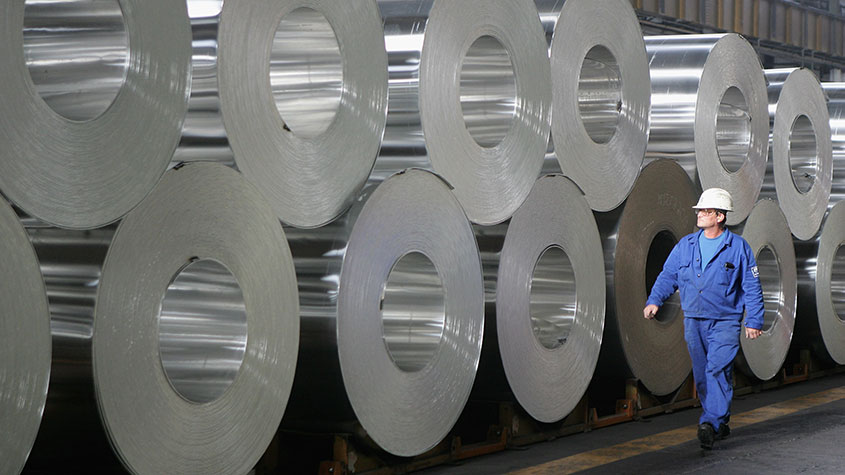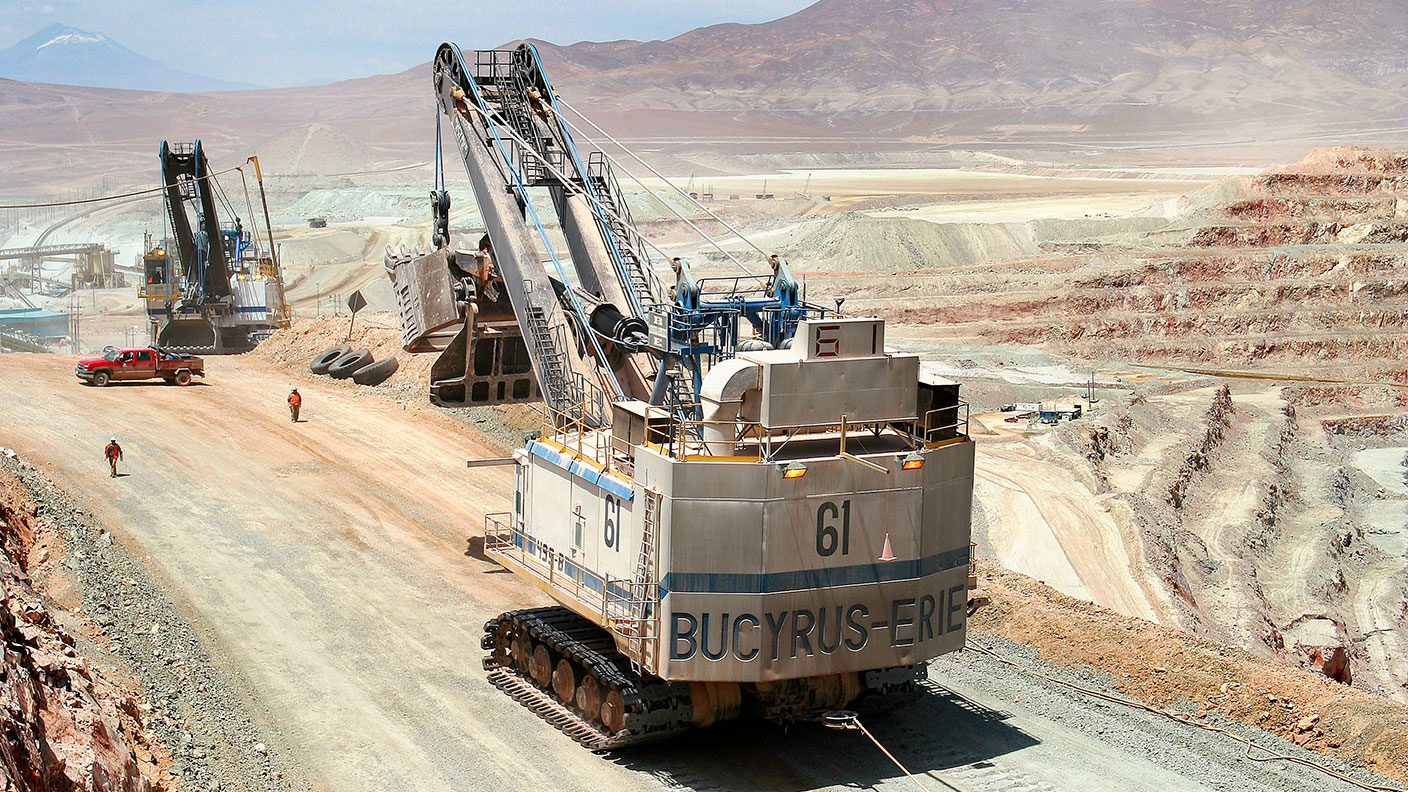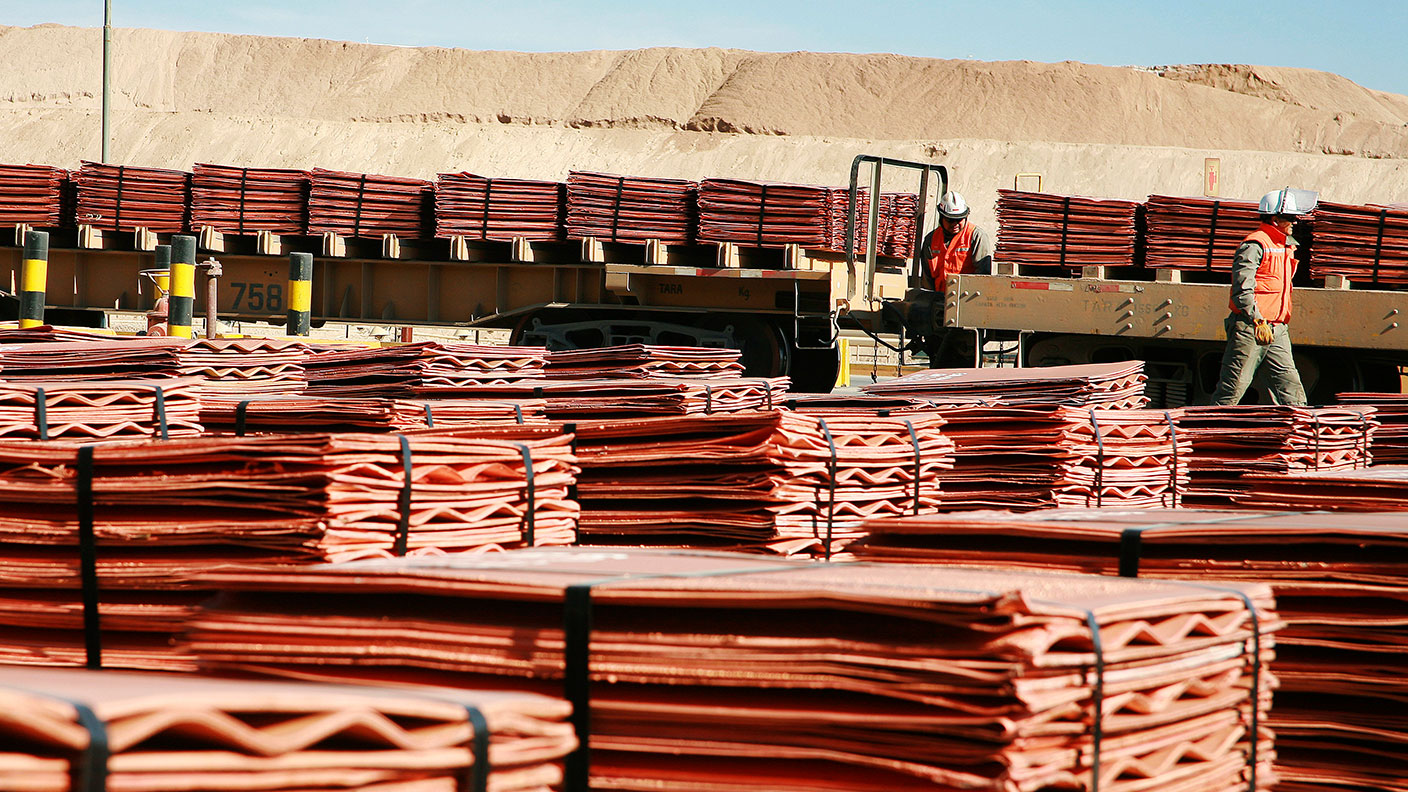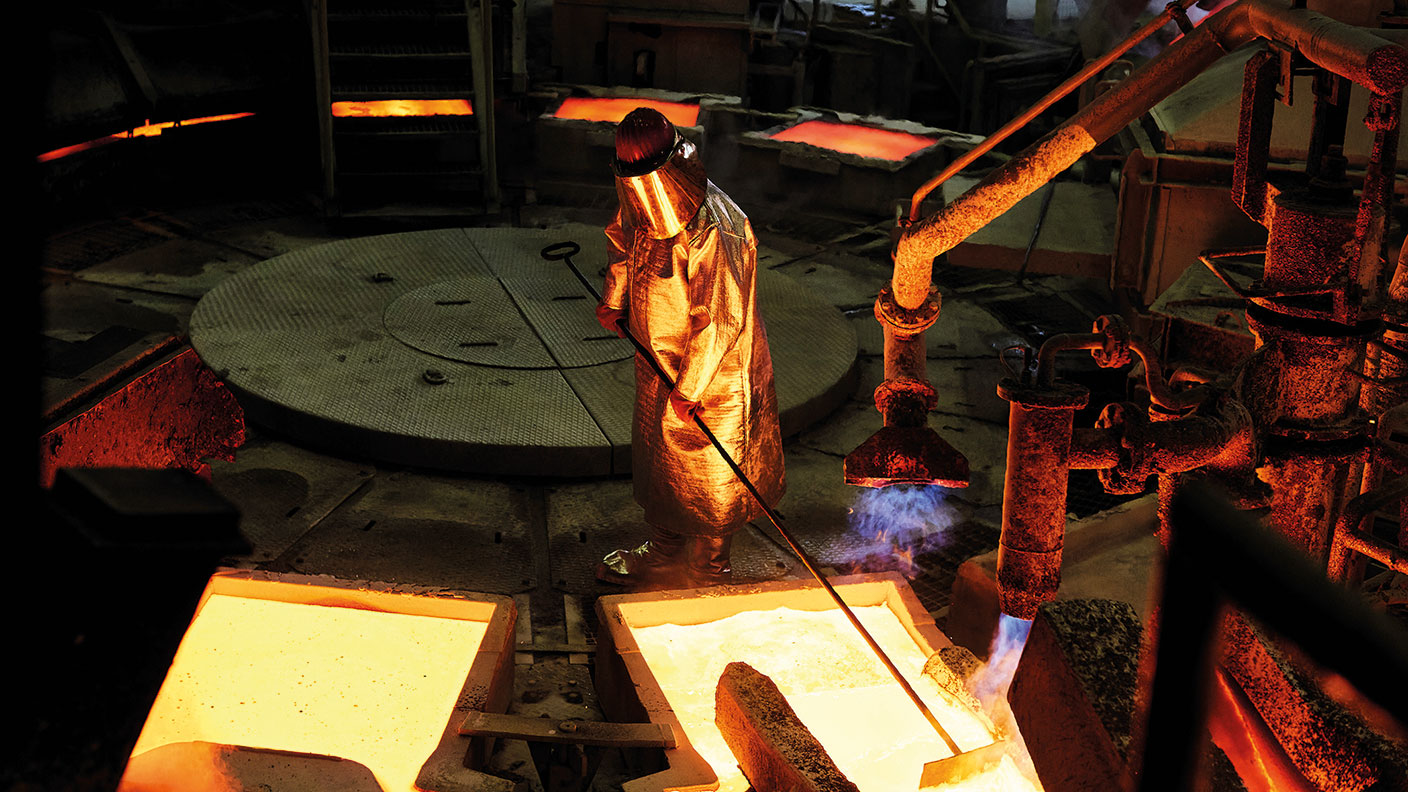Why now looks like a great time to invest in resources stocks
Stuffing your portfolio with commodities isn’t a particularly good idea, says John Stepek. But commodity producing stocks are an entirely different kettle of fish. Here’s why.

Get the latest financial news, insights and expert analysis from our award-winning MoneyWeek team, to help you understand what really matters when it comes to your finances.
You are now subscribed
Your newsletter sign-up was successful
Want to add more newsletters?

Twice daily
MoneyWeek
Get the latest financial news, insights and expert analysis from our award-winning MoneyWeek team, to help you understand what really matters when it comes to your finances.

Four times a week
Look After My Bills
Sign up to our free money-saving newsletter, filled with the latest news and expert advice to help you find the best tips and deals for managing your bills. Start saving today!

People sometimes ask me whether you should own commodities oil, copper, cotton, all that "stuff" in your portfolio, as a diversifier.
No, is the short answer (with the exception of monetary metals, which are an entirely different asset class).
Commodities costs you money to hold, their price is incredibly volatile, and over the long run, most of them lose value, because if there's a genuine shortage, people find substitutes they have to.
MoneyWeek
Subscribe to MoneyWeek today and get your first six magazine issues absolutely FREE

Sign up to Money Morning
Don't miss the latest investment and personal finances news, market analysis, plus money-saving tips with our free twice-daily newsletter
Don't miss the latest investment and personal finances news, market analysis, plus money-saving tips with our free twice-daily newsletter
But while holding commodities themselves isn't a good idea, commodity-producing stocks are an entirely different kettle of fish
A strong case for buying resources stocks
The group points out that investing in the resources sector provides diversification benefits. Over ten years, energy and metals companies are negatively correlated with the rest of the US stockmarket. In other words, when resources stocks are doing well, other sectors aren't, and vice versa.
Resource stocks also do well during inflationary periods. Most equities run into trouble when inflation hits the 5% mark and above. However, "historically, resource equities have not only protected against inflation but have actually dramatically increased purchasing power during inflationary periods."
Inflation might not sound like much of a worry right now, but as GMO puts it, better safe than sorry. "We believe unexpected inflation risk is one of the two big risks that long-term investors face, along with depression risk".
Perhaps most importantly, resource stocks currently look cheap relative to the rest of the market. "When valuations relative to the market have been in the cheapest quintile of history" (as they are now) "the commodity producers have outperformed the broad market by almost 7% per annum over the next five years on average."
The investors' wager: you might as well believe that Malthus was wrong
This notion that commodities will at some point "run out" as a result of rampant demand growth, and that their long-term prices will therefore be permanently higher, has been proved wrong time and time again, since the days of the Reverend Malthus and (I suspect) before then too.
Of course commodity prices rise over a cycle. But they fall too. To understand this, as MoneyWeek contributor and financial historian Edward Chancellor points out in his book, Capital Returns: Investing Through the Capital Cycle, the key thing that an investor needs to focus on is supply, not demand. One is relatively predictable the other is not.
This applies to every industry, not just resources, but it's probably more obvious in the commodities sector than in any other. We've described the commodity cycle here more times than I care to remember, but it goes roughly like this:
Demand outstrips supply; prices go up, so producers boost supply. If prices keep going up, consumers hunt for substitutes and efficiencies. Eventually, producers produce too much and consumers find more efficient methods and viable substitutes. Supply overwhelms demand, prices crash and supply falls. Rinse and repeat, ad infinitum.
That's human ingenuity inspired by necessity or the profit motive at work. So as far as I'm concerned, if a forecast can be described as Malthusian, then you might as well ignore it. (And if it has become "accepted wisdom" as Peak Oil did for a short period of time then treat it as a contrarian indicator.)
Some of you will think that sounds glib. The darkly foreboding, "winter is coming" quality of Malthusian forecasts has a certain romantic appeal to many. So let me explain my rationale.
I'm not saying I'm right. At some point in the future, human ingenuity may fail us. We may reach a plateau where we run out of some vital resource something that can't be found or replaced, not at any price.
But if that happens, then investing for the future will be the least of your worries. Forget your Sipp or your Lifetime Isa. Survival Mad Max-style will be what matters. So it's not really an outcome to invest for, beyond holding some gold (or silver in this case) in a physical, easily transportable (and preferably divisible) form.
It's a little like the investment equivalent of Pascal's wager. As an investor, you might as well believe that the long-term destiny for commodities is to lose money in "real" terms, because the alternative rather renders the point of investing moot.
(Pascal was a 17th century French philosopher who argued that when it came to religion, it was rational for human beings to behave as though God exists, because the downside of being an unbeliever and being wrong eternity in Hell was infinite, while the upside a bit of guilt-free debauchery, not having to go to church on Sunday was finite).
Anyway, you can discuss all that in the comments section on the website if you feel like it.
But from an investment point of view, it looks like a pretty good time to be investing in mining and resources stocks. We covered the gold mining sector in a recent issue of MoneyWeek magazine, and we'll be looking at the wider sector in more detail in a future issue. If you're not already a subscriber, sign up now.
Get the latest financial news, insights and expert analysis from our award-winning MoneyWeek team, to help you understand what really matters when it comes to your finances.

-
 Should you buy an active ETF?
Should you buy an active ETF?ETFs are often mischaracterised as passive products, but they can be a convenient way to add active management to your portfolio
-
 Power up your pension before 5 April – easy ways to save before the tax year end
Power up your pension before 5 April – easy ways to save before the tax year endWith the end of the tax year looming, pension savers currently have a window to review and maximise what’s going into their retirement funds – we look at how
-
 These 2 stocks are set to soar
These 2 stocks are set to soarTips The returns from these two aluminium and tin stocks could be spectacular when the commodity cycle turns says David J Stevenson.
-
 The best ways to buy strategic metals
The best ways to buy strategic metalsTips Weaker prices for strategic metals in the alternative-energy sector are an investment opportunity, says David Stevenson. Here, he picks some of the best ways to buy in.
-
 A lesson for investors from a ill-fated silver mine
A lesson for investors from a ill-fated silver mineAnalysis Mining methods may have changed since the industry’s early days, but the business hasn’t – digging ore from the ground and selling it at a profit. The trouble is, says Dominic Frisby, the scams haven't changed either.
-
 The natural resources industry is in a tight spot – which is bad news for the rest of us
The natural resources industry is in a tight spot – which is bad news for the rest of usOpinion The natural resources industry is in a bind. We need it to produce more energy and metals, but it has been starved of investment, plagued by supply chain issues, and hobbled by red tape. That’s bad news for everyone, says Dominic Frisby.
-
 How to invest in the copper boom
How to invest in the copper boomTips The price of copper has slipped recently. But that’s temporary – the long-term outlook is very bullish, says Dominic Frisby. Here, he explains the best ways to invest in copper.
-
 Why investors should consider adding Glencore to their portfolios
Why investors should consider adding Glencore to their portfoliosTips Commodities giant Glencore is well placed to capitalise on rising commodity prices and supply chain disruption, says Rupert Hargreaves. Here’s why you should consider buying Glencore shares.
-
 How to invest in the multi-decade boom in industrial metals
How to invest in the multi-decade boom in industrial metalsTips The price of key industrial metals has already begun to rise. The renewable energy transition will take them higher, says David Stevenson. Here's how to profit.
-
 Avoid China’s stockmarket – here’s what to invest in instead
Avoid China’s stockmarket – here’s what to invest in insteadOpinion China’s stockmarket is not a good place for investors to be. But you can't just ignore the world's second-largest economy, says Dominic Frisby. Here, he picks an alternative China play.